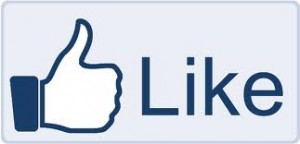Like, like….like
I went to a PSFK Conference a number of years ago and posted “Sort of” is the new “um.” Well, I’m here to update you — “like” is the new “um.” For 5 years it has been a nervous word kids and Millennials use to fill in their sentences. But now the word is taking on more meaning, or lack thereof, thanks to Facebook’s use of “like” as a ranking system.
When a teen or tween tells a friend the gut-wrenching “I like Mary” it’s very different than the like-gating or liking that’s going on when marketers are cheesing consumers into pressing the like button. Don’t native Inuits have nine different words for snow?
One used to rank online affinity by counting web traffic. If a site had lots of traffic, it was a well-appreciated site. Web Trends followed that traffic to see what people really landed on and it informed marketers. But then SEO jockeys started cheesing the system and traffic became less relevant. Enter the “like” button. But now even liking isn’t always liking. Google likes liking and calls it +ing (plusing).
A number of Facebook and Google Plus cottage industries are emerging and helping marketers game the system. It’s a huge business. But only about 10% of them really know what they are doing. And that 10% get what corporate CEOs and CFOs get — tie likes to new and recurring sales and you have a touchdown. Otherwise, those likes are flatter than a non-redeemed coupon. And how would Mary feel about that? Peace!


